Tuition fees for students entering the 2025 school year will continue to increase. The increase for public schools follows the Government 's decree, depending on the type of school and training sector, and can increase from 1.7 million to 8.75 million VND compared to the previous school year.
LOWEST 15.2 MILLION VND, HIGHEST 77.75 MILLION VND
University tuition fees are currently applied according to Decree 97/2023 of the Government on amending and supplementing a number of articles of Decree 81/2021 of the Government regulating the mechanism of collecting and managing tuition fees for educational institutions in the national education system and policies on tuition exemption and reduction, support for learning costs; service prices in the field of education and training.
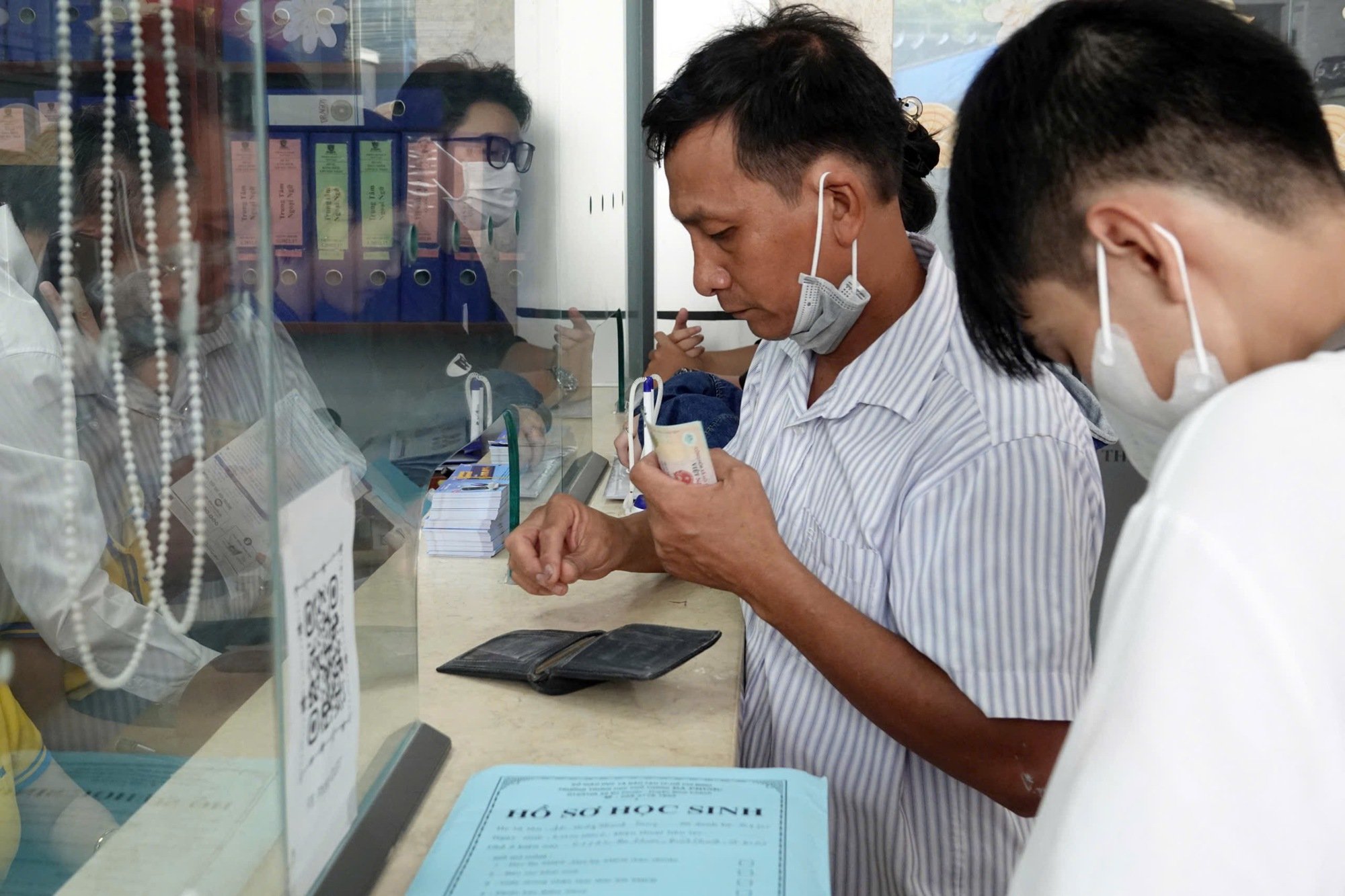
Parents go to university to pay tuition and complete admission procedures for their children.
Photo: Dao Ngoc Thach
According to this decree, the tuition fee ceiling applicable to public universities that are not self-sufficient in regular expenses (not yet autonomous - PV) for the 2025-2026 school year will have 7 levels. Of which, the art major has the lowest tuition fee at 15.2 million VND/year (an increase of 1.7 million VND compared to the 2024-2025 school year). Next, 2 majors have the same tuition fee at 15.9 million VND/year including: educational sciences and teacher training; business and management, law (an increase of 1.8 million VND compared to the previous school year).
The third lowest tuition block at 16.9 million VND/year is related to humanities, social and behavioral sciences, journalism and information, social services, tourism, hotels, sports, transportation services, environment and environmental protection (an increase of 1.9 million VND compared to the previous school year).
Two other majors also have tuition fees under 20 million VND/year, including: life sciences, natural sciences (at 17.1 million VND/year and an increase of 1.9 million VND compared to the 2024-2025 school year); mathematics, computer statistics, information technology, engineering technology, engineering, production and processing, architecture and construction, agriculture, forestry and fisheries, veterinary medicine (at 18.5 million VND/year and an increase of 2.1 million VND compared to the previous school year).
For the health sector alone, the Government decree stipulates two different collection levels. The maximum collection for medical and pharmaceutical sectors is 31.1 million VND/year (an increase of 3.5 million VND compared to the previous school year) and for other health sectors, 23.6 million VND/year (an increase of 2.7 million VND).
Thus, according to state regulations, in the 2025-2026 school year, non-autonomous public universities are allowed to collect tuition fees of up to 15.2 to 31.1 million VND/10-month school year. This fee increases by 1.7 to 3.5 million VND compared to the 2024-2025 school year, depending on the major.
Public universities have self-financed their regular expenses, with tuition fees for the next school year ranging from 30.4 to 62.2 million VND/year (an increase of 3.4 to 7 million VND compared to before). Public universities have self-financed their regular and investment expenses, with tuition fees collected ranging from 38 to 77.75 million VND/year depending on the major (an increase of 4.25 to 8.75 million VND).
Excluding programs that have achieved quality accreditation and are allowed to determine their own tuition fees based on economic and technical standards issued by the school, the university tuition fees for the coming school year will be at least 15.2 million VND and at most up to 77.75 million VND, depending on the type of school and training sector.
What is the maximum increase?
Based on the maximum tuition ceiling of Decree 97/2023, public universities determine tuition fees for the 2025-2026 school year according to each type of school and training sector. However, some schools said that their expected tuition fees are much lower than the maximum allowed.
Dr. Nguyen Trung Nhan, Head of Training Department of Ho Chi Minh City University of Industry, said that the school's tuition fees for the 2024-2025 school year will average around 32-33 million VND/year (mass program) and 40-45 million VND/year (English enhancement program). For the 2025-2026 school year, the school's tuition fees will be built based on the framework of Decree 97/2023 but will increase by no more than 5% compared to the previous school year.
Notably, Mr. Nhan said that the school's tuition fees are currently much lower than the maximum ceiling according to State regulations, especially in the field of engineering technology. For example, according to Decree 97, in the 2024-2025 school year, the tuition fees for engineering technology majors are allowed to be a maximum of 40 million VND/year. However, the tuition fees for these majors in the school's mass program are only over 30 million VND/year, nearly ten million VND lower. Next school year, if the tuition fee increases by a maximum of 5% to less than 35 million VND/year, it will still be much lower than the maximum tuition fee the school is allowed to collect, which is over 46 million VND/year.
"Applying tuition fees lower than the school's ceiling is to attract students to the STEM field," Dr. Trung Nhan explained.
Associate Professor, Dr. Nguyen Anh Tuan, Vice Principal of Ho Chi Minh City University of Transport, informed that the tuition fee applied to students admitted to the 2025 course is expected to be about 10% higher than that of the 2024 course. Previously, the tuition fee for the 2024 course of the standard training program was 12 million VND/year (2 main semesters); the advanced program collected 29.4 million VND/year; the program taught entirely in English was over 43.3 million VND/year. This tuition fee will not increase in the first 3 years of the course. Thus, corresponding to a 10% increase, the tuition fee for the 2025-2026 school year applied to newly admitted students is expected to be between 13 and 47 million VND/year.
Ho Chi Minh City University of Industry and Trade collects tuition fees for each course, so the average tuition fee does not increase for the entire course. Master Pham Thai Son, Director of the school's Admissions and Communications Center, said that the tuition fee for the 2025-2029 course is expected to increase by 3-7% compared to the 2024-2028 course. Accordingly, the expected tuition fee for students admitted in 2025 for the entire course is about 108-130 million VND/4 years of study. Previously, the tuition fee for the 2024 course was 102-120 million VND/course, with students paying an average of 32-36 million VND per year. "The school announces the tuition fee for the entire course so that students know the tuition schedule so that they can prepare their finances in advance when studying at the school," Master Son added.
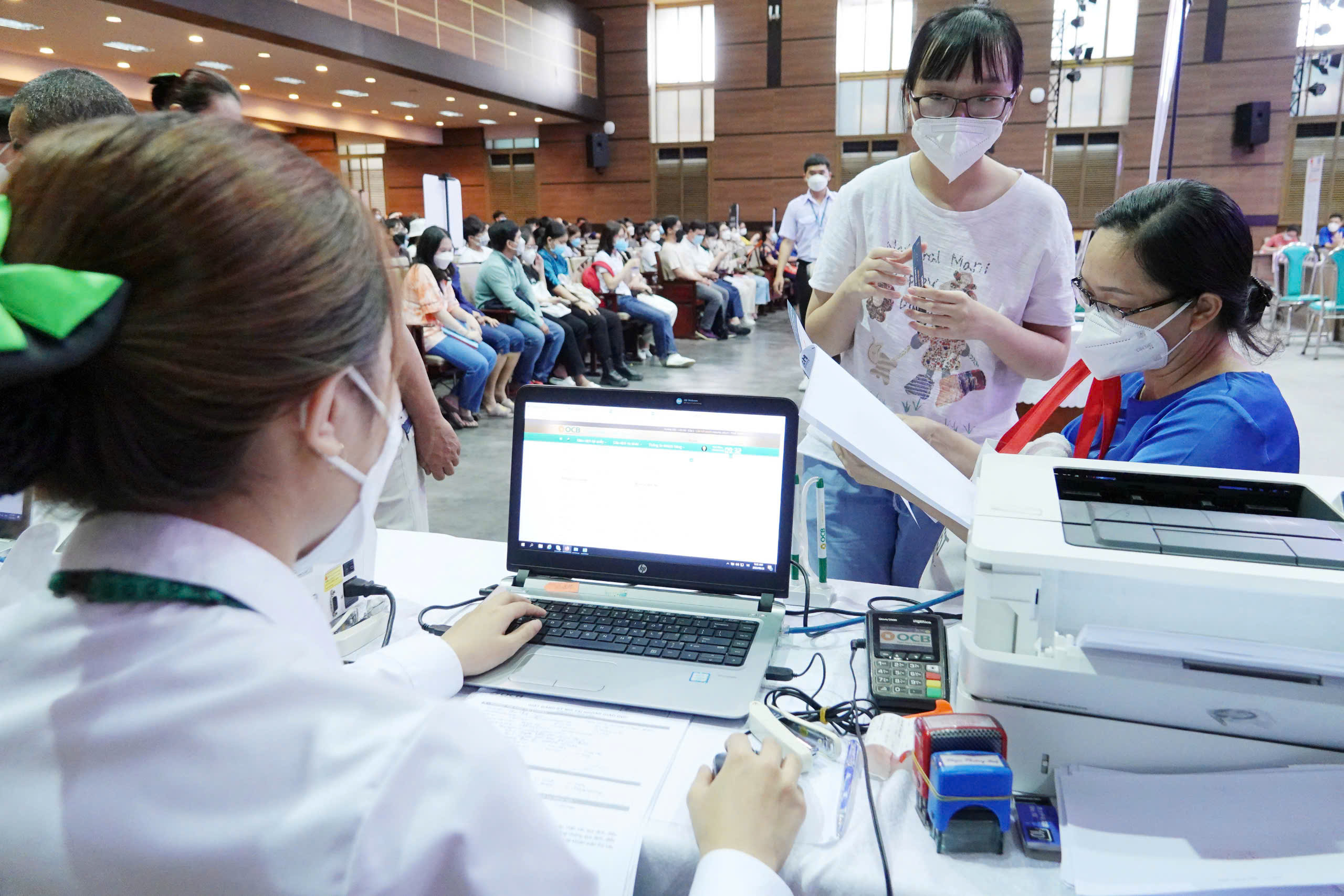
Successful candidates complete admission procedures and pay tuition. University tuition fees for students entering the 2025 intake will continue to increase.
PHOTO: DAO NGOC THACH
A representative of the University of Medicine and Pharmacy in Ho Chi Minh City said that the school has gone through the first five years of its autonomy period. In 2025, the school will evaluate, calculate and develop a new tuition roadmap for the next period. However, according to this representative: "The tuition fee for the next school year will not change much compared to the current level." Previously, students admitted to the 2024 class of the University of Medicine and Pharmacy in Ho Chi Minh City paid tuition fees ranging from 46 to 84.7 million VND/year. Of which, the highest tuition fee is for dentistry - maxillofacial surgery at 84.7 million VND/year; medicine at 82.2 million VND/year; pharmacy at 60.5 million VND/year; the remaining fees range from 46 to 50 million VND/year.
As a university that has not yet implemented autonomy, in the 2024-2025 school year, Ho Chi Minh City University of Culture collects tuition fees for full-time university level at an average of 16 million VND/year. Master Nguyen Thanh Tung, Deputy Head of the Department of Training, Scientific Management and International Cooperation of this school, said that the collection level for the next school year will follow the increase of Decree 97 for the group of schools that have not yet implemented autonomy. "Currently, some majors that have passed the school's quality accreditation can determine their own tuition fees according to the socio-economic norms issued by the school. However, the school plans to still collect the fee according to the ceiling prescribed by Decree 97," Master Tung added.
Some other university training institutions may increase tuition fees due to the change in school type in the coming school year, such as Vietnam Aviation Academy... Previously, Vietnam Aviation Academy stipulated that the tuition fees for all regular university majors of the 2024 course of study in Vietnamese in the 2024-2025 school year are expected to be 13.2 million VND/semester, with a tuition fee increase roadmap of no more than 10% per year. For the English program, English credits will be multiplied by a factor of 1.5 compared to the Vietnamese program.
Private universities decide their own tuition fees.
While public universities set tuition fees according to the ceiling set by the Government, private universities have the autonomy to decide on tuition fees. At this point, private universities are developing tuition and scholarship policies for the 2025 enrollment year.
However, in the 2024-2025 school year, tuition fees at private universities vary widely, from under 20 million to nearly 200 million VND/school year. Many schools only charge tuition fees of around 18-20 million VND/semester, but the school arranges 3-4 semesters/school year, so the average tuition fee per year is 60-80 million VND/student. In particular, tuition fees for health majors at private universities are also high, with some places charging over 180 million VND/year for dentistry.
Source: https://thanhnien.vn/hoc-phi-dai-hoc-tiep-tuc-tang-vao-nam-2025-185241223232120552.htm





![[Photo] Hanoi morning of October 1: Prolonged flooding, people wade to work](https://vphoto.vietnam.vn/thumb/1200x675/vietnam/resource/IMAGE/2025/10/1/189be28938e3493fa26b2938efa2059e)






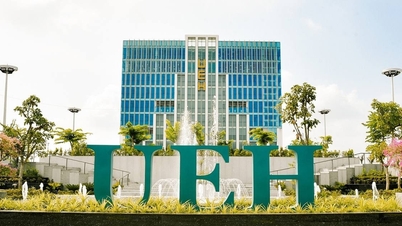






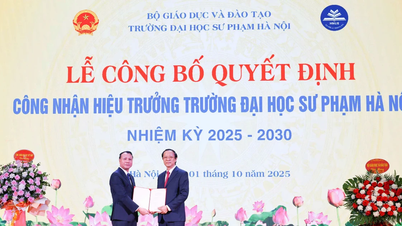

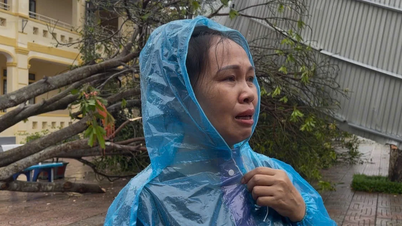








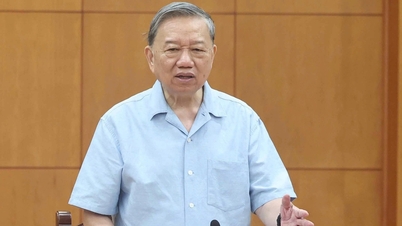





![[Photo] The 1st Congress of Phu Tho Provincial Party Committee, term 2025-2030](https://vphoto.vietnam.vn/thumb/1200x675/vietnam/resource/IMAGE/2025/9/30/1507da06216649bba8a1ce6251816820)
![[Photo] Panorama of the cable-stayed bridge, the final bottleneck of the Ben Luc-Long Thanh expressway](https://vphoto.vietnam.vn/thumb/1200x675/vietnam/resource/IMAGE/2025/9/30/391fdf21025541d6b2f092e49a17243f)
![[Photo] President Luong Cuong receives President of the Cuban National Assembly Esteban Lazo Hernandez](https://vphoto.vietnam.vn/thumb/1200x675/vietnam/resource/IMAGE/2025/9/30/4d38932911c24f6ea1936252bd5427fa)






















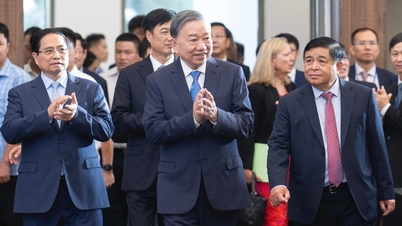



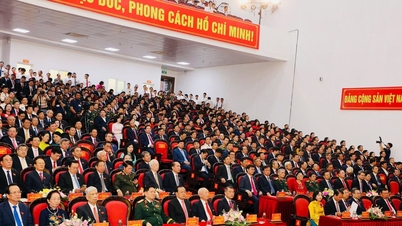

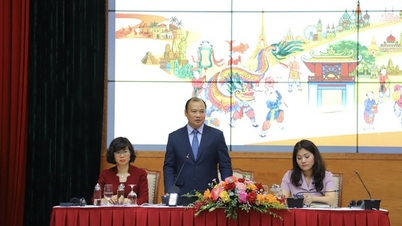



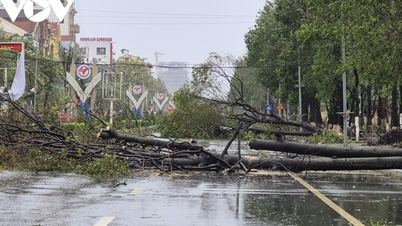




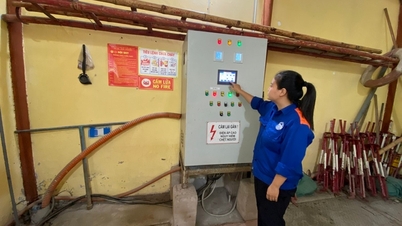





















Comment (0)